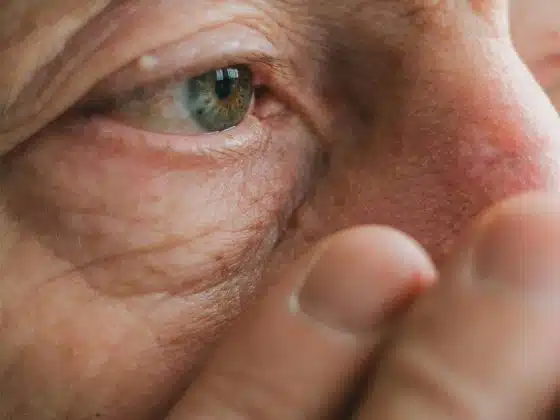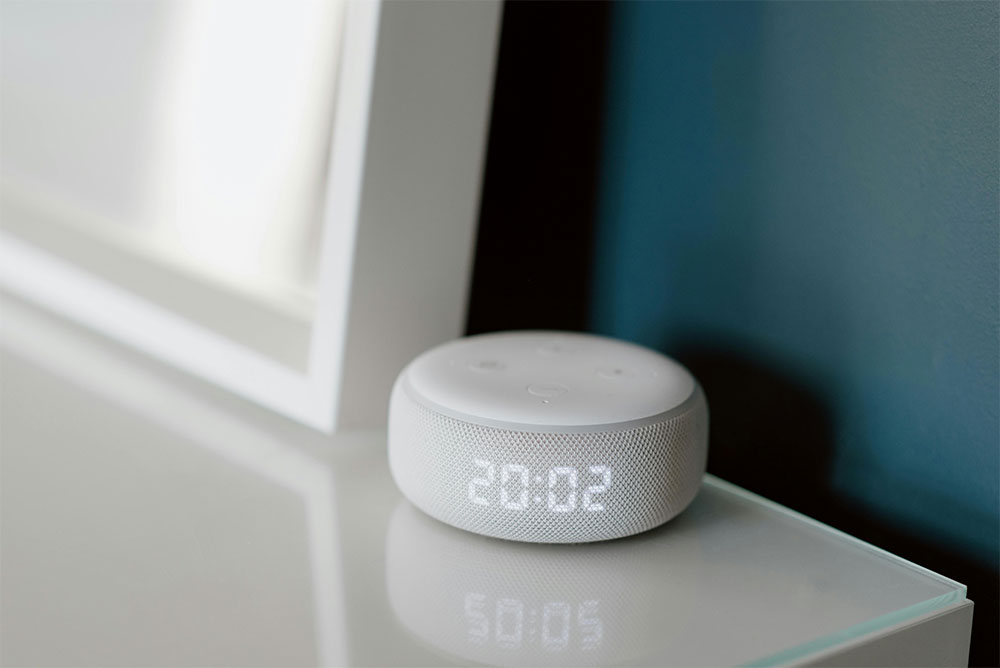Changes in the eyes are often overlooked but can be a significant indicator of underlying neurological conditions like dementia and Alzheimer’s. These changes, though subtle, can manifest in various ways, from pupil size and reactivity to overall gaze and eye movement patterns. Understanding these visual signs is crucial for early detection and intervention, as well as providing insights into the disease’s progression and impact on the individual.

Christopher Ravn
Key Takeaways
1. Several visual signs in the eyes, such as vision loss, unusual eye movements, and changes in pupil size, can be early indicators of dementia or Alzheimer's.
2. These eye changes are often linked to underlying neurological processes, such as the degeneration of neurons or the accumulation of amyloid plaques in the brain.
3. Early detection of these visual signs is crucial for timely intervention and management of dementia, allowing for a better understanding of disease progression and its impact on the individual.
Table of Contents
1. How Do Dementia Eyes Look Different?
2. How Do Alzheimer’s Eyes Look Different?
3. How Do Eyes Warn You Dementia May Be Coming?
4. Why Do Dementia Patients' Eyes Change?
5. Can An Eye Doctor Tell If You Have Dementia?
6. How Does Dementia & Alzheimer’s Affect Eyesight?
7. How Are Visual Perception Problems Linked To Dementia?
8. Are There Miscellaneous Indicators In Eyes For Dementia?
9. Frequently Asked Questions About Dementia Eyes Look Different
How Do Dementia Eyes Look Different?
Dementia eyes are different in the sense that they may cause changes in the appearance of the eye, which is a symptom of the disease. It may be difficult, but it is also an underlying sign of cognitive decline.
- Vision loss or impairment
- May display unusual facial expressions
- May cause mood swings, irritability, or depression
- May experience visual hallucinations
- Experience loss of peripheral vision
- Trouble moving their eyes or focusing on objects
How Do Alzheimer’s Eyes Look Different?
- Unable to tell the difference between shades of grey or colors may be impaired
- Unable to read or recognize faces due to the reduction in sharpness of vision
- Unable to process visual information from both eyes
- Pupils are dilated and constricted.
- Changes in eye movement are slower and erratic
- The buildup of amyloid plaques and tau tangles, which are proteins in the brain that affect the optic nerve and retina.
- The deterioration of neurons in the brain may also disrupt visual processing, which leads to changes in the eye. Therefore, early prevention such as brain exercises to prevent alzheimer’s in managing any signs of Alzheimer’s.
How Do Eyes Warn You Dementia May Be Coming?
- Issues in reading or writing
- Unable to focus
- Eye movement changes, such as slow or jerky movements
- The issue is with the way the brain processes visual information
- Unusual eye movement, such as rapid movement or looking at a person in a weird manner.
- Changes in pupil size, which is an early sign or condition
- It affects the way the brain processes visual information
Join families who have found relief with EVY LIGHT®
Click below to see how EVY LIGHT® is helping others
Why Do Dementia Patients' Eyes Change?
- Degeneration of neurons, which affects the visual nerves of the eyes
- There has been research that is indicative of it affecting the eyes because the optic nerve and retina are brain tissue, thus the effects the brain has on the eye.
- Eye conditions such as age-related macular degeneration (AMD), cataracts, and diabetes-related eye disease (DRED) may be linked to the risk of dementia.
- There have been links between glaucoma and vascular dementia, which is often seen in stroke patients.
- There are other risk factors, such as obesity, hearing loss, and high blood
4 Early Signs Of Dementia That Can Appear In Eyes Before Memory Issues Start
- Some studies indicate that the thinning in the middle of the retina could indicate cognitive decline
- Inability to move their eyes normally
- Issues with tracking or following objects with their eyes
- Changes in the size of the pupil may be an indication of early-onset dementia.
How Your Vision Can Predict Dementia 12 Years Before It Is Diagnosed
Certain studies have linked vision problems to an early indicator of cognitive decline and dementia. The research states that a loss in visual sensitivity may predict dementia 12 years before diagnosis.
A study showed that a few participants were asked to take a visual sensitivity test. This test needed the participant to press a button as they saw a triangle forming in moving dots. Those who detected the triangle much slower were susceptible to developing dementia. This is because it is believed that the protein amyloid plaques affect the brain area linked to vision. Hence, one needs to fully be aware of which sense is most affected by alzheimer’s disease.
- nability to see outlines of objects
- Unable to tell the difference between colors, especially in the blue-green spectrum
Can An Eye Doctor Tell If You Have Dementia?
Though an eye doctor may detect health issues with a thorough eye exam, they are not equipped to diagnose dementia. This is because dementia is a condition that needs evaluation from a healthcare professional, such as a neurologist or geriatrician.
However, there have been some indications that eye exams may ascertain potential risk factors or signs of dementia. For instance, a study showed that a density of blood vessels in the eye may be used to pinpoint cognitive differences in dementia.
- Your reflexes
- Pupil reaction
- Eye movement
- Balance and coordination
How Are Neurological Diseases Connected To The Eye?
- Inflammation of the optic nerve may cause vision loss, pain, and light sensitization.
- Reduced blood flow to the optic nerve never causes vision loss.
- Glaucomatous optic nerve disease that causes vision loss and blindness
- Parkinson’s disease may cause movement problems that cause blurred vision.
- Alzheimer’s Disease may cause eye movement issues, including blurred vision.

How Does Dementia & Alzheimer’s Affect Eyesight?
- The thinning of the retinal nerve fiber layer (RNFL) and ganglion cell layer (GCL)
- Macular thickness and decrease in volume
- Changes in electrophysiological changes in the retina
- Amyloid-β (Aβ) deposition and tau aggregation have been found in the retina of patients with AD
- As the retina’s blood vessels change, the number of small blood vessels and the sizes of the arterioles and veins get smaller.

Dementia And Sight Loss
- Visual hallucinations may cause patients to see things that are not there. This leads to confusion, disorientation, and a decline in their daily function.
- The inability to process visual information results in issues with reading, recognizing faces, and walking through familiar pathways. This causes the patient to experience discomfort, frustration, and anxiety.
- May cause impairment in visual acuity, thus making it difficult for individuals to see objects, people, or details. This may lead to issues such as cooking, cleaning, and dressing.
- Patient is at a greater risk of developing eye issues such as glaucoma, cataracts, and other age-related macular issues.
Sight And Hearing Loss With Dementia
Sight and hearing loss are common conditions that take place with those as they age. For those who suffer from dementia, there may be issues with communicating, navigating their environment, or even understanding what is happening around them.
- Sight and hearing loss, which causes confusion and disorientation.
- Hearing loss makes it difficult for dementia patients to communicate effectively.
- Hearing loss may also cause dementia
- Issues with diagnosing dementia may be challenging due to sight and hearing loss.
- Parts of the brain that handle visual information.
- Cause age-related changes such as vascular disease or risk factors such as dementia.
- Genetic link between Alzheimer’s Disease and hearing loss
How Are Visual Perception Problems Linked To Dementia?
Visual perception is when the human brain reads and interprets the visual information in its environment. For those with dementia, visual perception takes place because of the brain’s inability to process information, which leads to issues recognizing objects, facts, and spatial relationships.
- Dementia affects visual perception by misperceiving objects, people, or situations, which leads to confusion and disorientation. They may mistake familiar faces as signs or reflections in the window as a person.
- Hear or see things that are not there and this is common with those with Lewy body dementia.
- It affects a person’s sense of time, thus leading to difficulties in estimating time intervals faces, and events
- Impaired perception and spatial awareness may increase the risk of falls, as it is difficult for patients to navigate around and judge their distances.
- Visual perception may also impact patients via social isolation because they may be withdrawn or embarrassed.
Common Vision Perception Changes In People With Dementia Or Alzheimer’s
- Common issues that are tied to their visual perception are:
Less sensitivity to variations in contrast between objects and backgrounds. - Difficulty recognizing faces and objects
- Difficulty judging distances
- Hallucinations and misperceptions
- Difficulty with visual processing and understanding
- Misperceptions and hallucinations cause anxiety and confusion.
- Unable to remember faces and objects, thus leading to misbehavior
- Difficulty judging distances, which causes accidents and falls
- Changes in visual processing with lead to difficulty with their daily activities
- Glaucoma, cataracts, and macular degeneration are just a few examples of eye diseases that affect visual perception.
- Changes in the retina may reflect changes in the brain, which leads to altered visual perception
- Improve the patients’ lighting levels and reduce visual clutter
- Use assistive devices, such as reading glasses to help with visual tasks
- Encourage participation in activities that do not require complex visual processing
- Assist in their daily tasks and help process visual cues.
- Utilize sensory activities for dementia patients
- Opt for light therapy for dementia which may improve cognitive function.
Are There Miscellaneous Indicators In Eyes For Dementia?
There are miscellaneous indicators in the eyes that are related to dementia, which have been stated to be biomarkers for the disease. Visual issues may be an indicator of toxic amyloid plaques, which are linked with Alzheimer’s Disease as they affect the brain and vision.
- Reduced contrast sensitivity
- Difficulty discerning certain colors, particularly the blue-green spectrum
- Deficits in the “inhibitory control” of eye movements make it harder to focus on a single stimulus
- These visual changes can affect people’s daily lives without them being immediately aware of it.
Another study found that dilation of the pupil may be tied to an indication of risk for Alzheimer’s Disease. The study stated that middle-aged adults who had greater dilation had a higher risk of contracting Alzheimer’s.
Though early signs in the eyes may not be noticeable, they are detected through visual tests. These changes can take place years before a decline in cognitive tests is seen. Thus, it is believed that vision problems may worsen the progression of dementia. For instance, an Alzheimer’s patient may have difficulty with visual processing, which leads to confusion and disorientation, which further exacerbates their daily functioning.
Frequently Asked Questions About Dementia Eyes Look Different
How Do Your Eyes Warn You Dementia Is Coming?
- Issues in reading or writing
- Unable to focus
- Eye movement changes, such as slow or jerky movements
- The issue is with the way the brain processes visual information
- Unusual eye movement, such as rapid movement or looking at a person in a weird manner.
- Changes in pupil size, which is an early sign or condition
- It affects the way the brain processes visual information
Common Vision Perception Changes In People With Dementia Or Alzheimer’s
People with dementia or Alzheimer’s disease may experience changes in their visual perception, thus impacting their behavior. This change resulting in their inability can affect the way the patient processes visual information, including their inability to recognize objects or understand their surroundings.




































